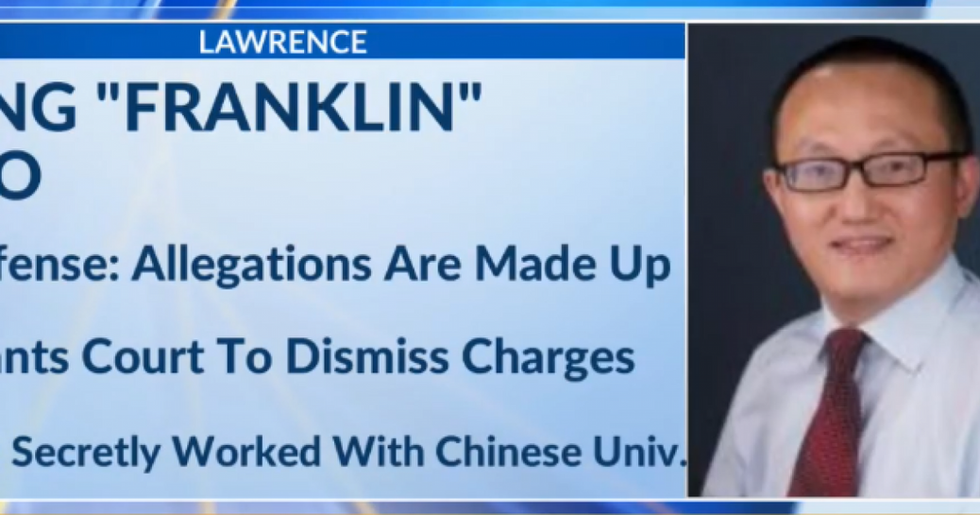A Kansas associate professor hid the work he was doing for the Chinese government while working at the University of Kansas.
According to federal charges filed on Wednesday, January 15, 2020, the man also attempted to recruit other researchers and students.
Feng “Franklin” Tao, 47, of Lawrence, Kansas was charged with two counts of wire fraud and one count of program fraud for failure to disclose on conflict-of-interest forms of the work he was doing for China while working as a full-time associate professor at the University of Kansas’ Center for Environmental Beneficial Catalysis. Prosecutors said the U.S. Department of Energy funded some of Tao’s research at the University of Kansas.
The 16-page indictment details how China bolstered its meteoric economic growth by offering scholarships or funding to foreign students or visiting professors who were attending or working at American universities. The Chinese government also used “talent plans” with the purpose of encouraging the transfer of original ideas and intellectual property from U.S. universities to Chinese government institutions to boost Chinese “scientific development, economic prosperity, and national security.”
These plans have existed since the early 1990s, but the Chinese government revitalized them in 2007 as part of its strategy to augment economic development, federal prosecutors said. The Communist Party of China presides over all talent plan applicants, and the government administers and finances the program by cooperating with other agencies within the Chinese government.
As of 2016, China has more than 56,000 talent program participants carrying out the Communist Party’s interests abroad. The indictment said the Changjiang Professorship was one program the Chinese government and the Communist Party sponsored.
According to the indictment, Tao allegedly did not disclose to the University of Kansas his involvement in the Changjiang Professorship or the salary he received for his appointment to Fuzhou University in Fuzhou, China.
Under the Changjiang contract, Tao was required to recruit two to three doctor students and three to four master’s students annually to work with him at Fuzhou University, according to the indictment.
Federal prosecutors also noted in the indictment several email exchanges showing Tao’s efforts to recruit students and researchers for employment opportunities in China.
Additionally, the indictment alleges Tao sponsored at least four researchers and students visiting the University of Kansas from China.
One of Tao’s researchers joined his research team back in Fuzhou University.
Federal prosecutors highlighted numerous trips Tao took in 2017 and 2018 to China. Tao also performed “some duties” at Nagoya University in Japan.
Before he was arrested in August 2019, Tao was listed as a member of the Fuzhou University on its website. Right after his arrest, all mention of Tao were wiped off the Fuzhou website. According to prosecutors, Tao never asked the University of Kansas for permission to work at Fuzhou University or Nagoya University.
Tao was an associate professor of engineering at the University of Kansas . He was born in China and moved stateside in 2002. He has been employed since August 2014 at the University of Kansas’s Center for Environmentally Beneficial Catalysis in Lawrence. The center carries out research on sustainable technology to conserve natural resources and energy.
SOURCE:Paper.li


